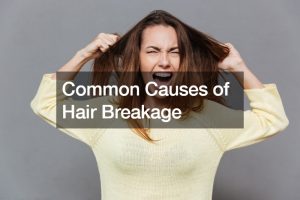Did you know that various factors affect your appetite? Many people think that their appetites are solely based on how hungry they are, but there are actually a variety of different things that can influence your hunger levels and what foods you crave. From your mood to your metabolism, here are some of the most common factors that can affect your appetite.
Your Mood
Your mood can affect your appetite for food in many ways. For example, if you’re happy, you’re more likely to have a hearty appetite and enjoy eating. On the other hand, if you’re feeling sad or anxious, you may not feel like eating at all. Stress can also lead to overeating or undereating. When you’re under pressure, your body releases the hormone cortisol, which can increase your appetite. Cortisol also triggers the release of insulin, which helps to store energy as fat.
In addition, when you’re stressed, you’re more likely to crave high-fat, high-sugar foods that temporarily boost energy. The bottom line is that your mood can have a significant impact on your appetite and what you eat. So if you’re trying to manage your weight, it’s essential to pay attention to your mood and try to regulate it accordingly.
Your current weight
If you’re carrying extra weight, you may be constantly hungry. This is because excess weight can increase the number of hunger hormones in your body. Additionally, being overweight can lead to inflammation, which can also increase your appetite. On the other hand, if you’re underweight, you may find that your appetite is decreased. This is because being underweight can suppress the production of hunger hormones.
Additionally, underweight individuals often have less muscle mass, so they burn fewer calories and may have a lower metabolism. No matter your weight, it’s essential to pay attention to your body’s signals and eat when you’re hungry.
Your dental health
Poor dental health can lead to a decreased appetite. This is because tooth pain and other dental problems can make it difficult to chew and eat food. For example, if you’re missing a tooth, you may find it difficult to eat certain foods. Hard-to-chew foods may also make you less likely to eat, as they can be painful to chew. If this is the case, you need to find a way to make eating comfortable and enjoyable. You may opt to get a dental implant or dentures to replace missing teeth. These teeth replacement solutions can help you eat normally and enjoy your food more, allowing you to maintain a healthy appetite.
Emotional state
When you’re happy and content, you’re more likely to have a healthy appetite. However, when you’re feeling stressed or anxious, your appetite can suffer. This is because the stress hormone cortisol disrupts the normal signals that control hunger and fullness. As a result, you may find yourself overeating or undereating when you’re under stress.

Additionally, emotional eating can lead to weight gain or other health problems. If you find yourself eating in response to your emotions, it’s essential to seek help from a counselor or therapist who can help you develop healthier coping mechanisms. Taking care of your mental health is essential for maintaining a healthy weight and overall health.
Hormones
The endocrine system is a network of glands that produce and release hormones into the bloodstream. These hormones are essential in regulating many bodily functions, including appetite. When the endocrine system is functioning correctly, hormones help to control hunger and fullness cues, ensuring that you eat only when needed. However, when hormone levels are out of balance, it can lead to changes in appetite.
For example, an increase in the hormone ghrelin (which stimulates hunger) can cause someone to feel hungrier than usual, while a decrease in the hormone leptin (which signals satiety) can lead to overeating. Hormone imbalances can be caused by various factors, including stress, illness, and certain medications. If you are concerned that your appetite is not normal, it is best to speak with a doctor or other healthcare professional.
The weather
Research has shown that the weather can have an impact on appetite. For example, a study of office workers found that those exposed to more natural light during the day ate less than those who were not. Similarly, another study found that exposure to cold temperatures can increase appetite, especially for high-calorie comfort foods. While the exact mechanisms are not yet fully understood, it is clear that the weather can have a significant impact on our desire to eat.
The bottom line
Your body’s need for food will depend on various factors. Pay attention to your hunger cues and eat when you’re hungry. At the end of the day, eating right and maintaining a healthy weight is about finding the balance that works best for you. If you’re concerned about your appetite or weight, speak with a doctor or other healthcare professional.



